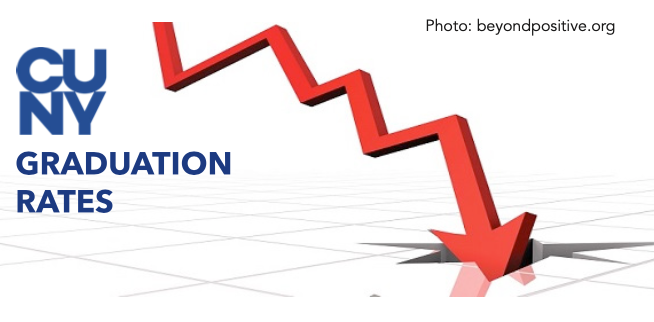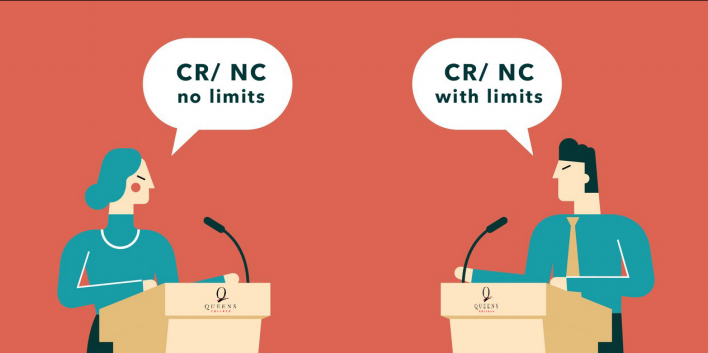Many students enrolled in the City University of New York (CUNY) have had the relatable experience of seeing the dreaded blue square next to a course title on CUNYFirst, the student class portal, just minutes before their registration slot, indicating that a class that they wished to sign up for has already been filled. As a result, registration dates and class capacity are easily two of the most stressful factors in ensuring a fulfilling semester to follow and in some cases, a timely graduation.
For the past 30 years, CUNY has reported below-average four-year graduation rates. According to College Factual, only 56.1% of the Class of 2011’s freshmen in CUNY Queens College (QC) had finished their degree by 2017. Other CUNY colleges have reported similar numbers: Medgar Evers being the lowest with only 39% of students graduating within six years.
These low graduation rates have long been attributed to factors beyond the University’s control, such as that 27% of CUNY students are over the age of 25, and as a result, more likely to be working full-time or struggling to secure childcare in order to attend classes. These theories have led to the creation of programs such as “QC in 4”, a program specific to QC which serves to encourage students to sign up for 15 credits each semester to ensure they graduate in four years’ time. A variety of factors such as small class sizes, strict prerequisite policies, and limited access to advisors are often credited as most responsible for hindering CUNY students in their studies and delayed graduation dates.
However, an audit released on September 1st has revealed that efforts such as these may be futile, as CUNY students simply do not always have access to the resources necessary to graduate in the expected four years. The audit, released by New York State Comptroller Thomas DiNapoli, covered three years of CUNY academics and was conducted in order “to determine whether the City University of New York (CUNY) is effectively matching course offerings to student demand.”
A series of surveys conducted revealed that many students had been barred from necessary classes. One particular 2018 survey, known as the CUNY Student Experience Survey, reported that 35% of the students surveyed claimed to have been unable to register for one or more of their courses, thereby possibly contributing to the delay in their graduation. Unfortunately this issue remains prevalent among CUNY students in 2020, especially those pursuing common majors such as psychology, biology and computer science.
“When registration for this past spring opened, the only class I needed to take for my major was Advanced Experimental Psych” said an anonymous senior psychology major at QC. “It was a 20 or 25 person class and even though I had regular senior registration, I got locked out. If I had been able to take it I could have easily finished last semester, but now I’m graduating after this semester [Fall 2020] instead of last spring.”
A delayed graduation can amount to added financial expenses for students, many of whom are at a financially-sensitive point in their lives, or just beginning to support themselves. Many only qualify for eight semesters of financial aid, and most scholarship programs don’t cover more than four years of tuition, so students relying on such can find themselves in unanticipated debt. The constant unreliability of securing a place in necessary courses is daunting as graduation timing can not only be a source of financial strain, but also directly impact post-graduation plans.
“Registration is stressful,” commented Morielle Tolchin, a Brooklyn College senior psychology major. “You don’t know which class you’re going to get or get locked out of or how it’s going to impact the next year of your life. I’m nearing the end of my college career and I really need to get into the right classes in order to graduate in the spring so that I can enroll in a graduate program next fall.”
Since the audit concluded that CUNY is not, in fact, meeting its students’ academic needs, it is anticipated that there will be an effort to add much needed class sections in crowded majors. Already some classes have become more lenient with regard to overtallying, but CUNY students have yet to see if more course seats will become available despite persistent underfunding and COVID-19 budget cuts.














